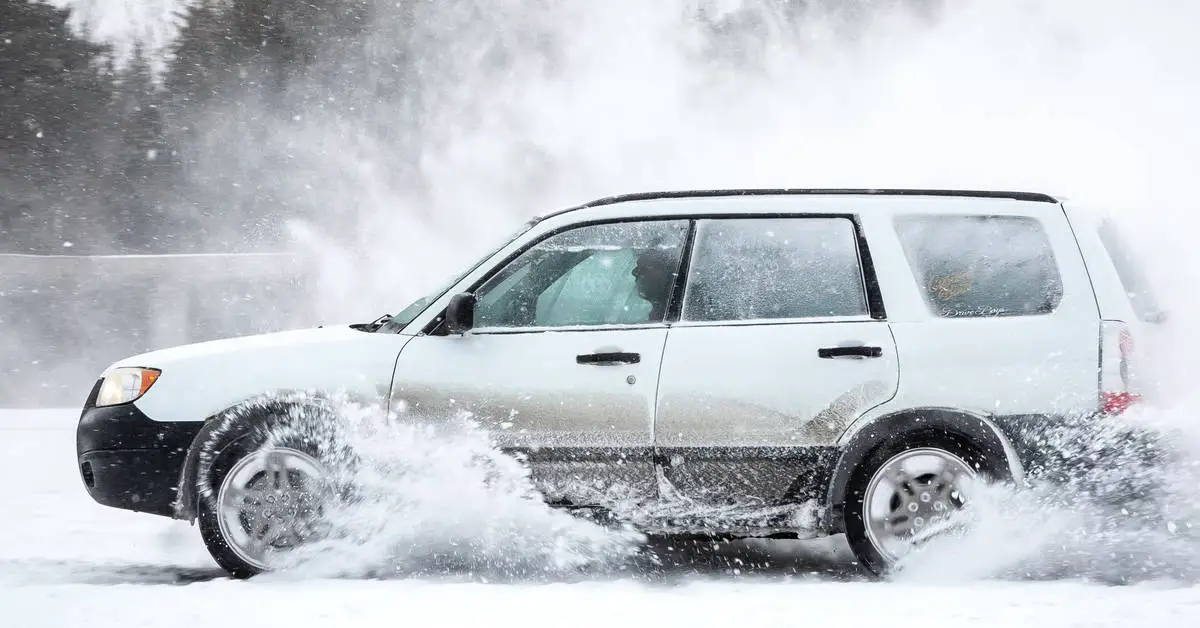Have you ever driven your vehicle without power steering? If yes, I’m sure you already know how essential the component is to your car. In case you don’t know, one of the benefits of using power steering is that it helps to reduce the effort needed to steer a heavy vehicle.
Furthermore, the power steering is designed to improve your steering response. This explains how you can quickly change the direction of your car when you turn the wheel. However, the power steering isn’t without its issues.
One of the common issues that drivers face with their power steering is that, sometimes, the system can become hard to work. This issue mostly happens during cold weather. The cold turns the hydraulic fluid thick, making it pretty hard for the substance to be pumped into the system.
What exactly causes power steering to stiffen? Is it possible for cold weather to affect power steering? What do you do if your power steering is hard to turn? As you read through the rest of this article, you’ll find answers to the burning questions above.
What Causes Power Steering To Stiffen?

Several factors can contribute to why your power steering is hard and stiff. The common ones include wearing off of some components, cold weather, late servicing, and lack of proper maintenance of the power steering system.
Furthermore, knowing the main reason why your power steering is misbehaving or hard to use is important. This way, you can always understand the early warning signs and address the issue before it worsens.
That said, you can check below to see some of what could be causing your power steering to stiffen when in use:
1. Thick power steering fluid
As earlier mentioned, cold weather is one of the factors that could cause your power steering to stiffen.
Here’s the thing; when you park your vehicle outside in cold weather, the hydraulic fluid, which is necessary to keep your power steering working smoothly, gets thicker. Because of that, it becomes pretty difficult to pump the fluid into the power steering system.
Most times, when the power steering is starving for hydraulic fluid, one of the warning signs you’ll get is a whining noise coming from your vehicle’s engine compartment. When this happens, the power steering will become hard and stiff to operate at low speeds.
2. Low hydraulic fluid
Fluid leakage from your vehicle’s pressurized hose area is one of the factors that could cause low hydraulic fluid. Unfortunately, if the power steering system can’t get enough fluid, it could stiffen, becoming pretty challenging to operate. The best way to address this issue is to first address the leak issue. After that, refill the power steering tank with the right fluid.
3. Defective power steering pump
The power steering pump is the device that circulates fluid, under pressure (hydraulic), to the necessary area in the power steering system. The device is driven by the engine’s serpentine belt. Furthermore, the pump’s pressure is what makes the hydraulic piston in the steering gear move in your desired direction.
That said, it’s safe to say that if the power steering pump is faulty, there’s no way the piston can move. In this situation, the power steering will stiffen because the piston fails to work to reduce the effort needed to steer the wheel.
4. Faulty serpentine belt
As earlier mentioned, the serpentine belt is an engine component designed to drive the power steering pump. If the belt is not in good working conditions, this could make the power steering hard and stiff to control. It’s pretty simple; without the serpentine belt, it becomes very challenging to drive the pump and circulate the hydraulic fluid to the right parts.
The best thing you can do to address this issue is to replace the serpentine belt with a new one. In addition to that, you need to address this issue on time to prevent further damage.
5. Damaged steering rack
The steering rack is, arguably, the most important part of the steering system. It’s designed to help convert the revolving motion of pinion gear to a linear motion. This is what makes it possible for your vehicle’s wheels to turn left or right.
If your vehicle’s steering rack is faulty, it will certainly affect how the power steering will function. So, the bottom line is that a damaged steering rack could be the reason why your power steering is hard and stiff.
Can Cold Weather Affect Power Steering?

Cold weather can always affect the performance of your power steering system. Here’s the thing; if you park your vehicle outside during cold weather, one of the things that will be affected is the hydraulic fluid, necessary to keep the power steering system working smoothly.
It’s simple; the cold weather will most likely make the power steering fluid thick. Unfortunately, if this happens, it’ll become very difficult for the hydraulic pump to circulate the fluid to the necessary area. This is one of the reasons why your power steering could become stiff and hard to turn the wheels.
What Do You Do If Your Power Steering Is Hard To Turn?
What to do if your power steering becomes hard to turn depends on the cause of the issue. In the previous section of this post, I only mentioned five common reasons why power steering could become hard to turn. However, you need to understand that several other factors could cause the power steering to stiffen.
Now, let’s talk about the “hard to turn” issue of the power steering. If you’re currently experiencing the issue, the first thing you need is to understand exactly where the issue is coming from.
For instance, is “cold weather” the cause of the power steering stiffness? If yes, the best thing you can do is to flush the old thick fluid out of the power steering system. After that, refill the tank with new fluid. In addition to that, you need to avoid parking your vehicle in cold areas for a long time.
Furthermore, if after running a check on the system, you found out that the problem is a result of leakage, the best thing you need is to fix the problem and refill the power steering tank.

